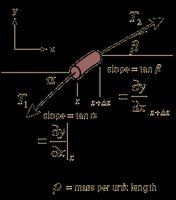How is Mathematics Learned?
 Practice vs. understanding: which is more important? Should students seek understanding early in the education game, or is it better to apply mathematical tools under the assumption that understanding will come with experience? According to Keith Devlin, NPR's The Math Guy, simple methodical practice is best. In a recent article published on the Mathematical Association of America's website, he suggests that practice is the natural method by which we learn any skill:
Practice vs. understanding: which is more important? Should students seek understanding early in the education game, or is it better to apply mathematical tools under the assumption that understanding will come with experience? According to Keith Devlin, NPR's The Math Guy, simple methodical practice is best. In a recent article published on the Mathematical Association of America's website, he suggests that practice is the natural method by which we learn any skill:"When we learn a new skill, initially we simply follow the rules in a mechanical fashion. Then, with practice, we gradually become better, and as our performance improves, our understanding grows. Think, for example, of the progression involved in learning to play chess, to play tennis, to ski, to drive a car, to play a musical instrument, to play a video game, etc. We start by following rules in a fairly mechanical fashion. Then, after a while, we are able to follow the rules proficiently. Then, some time later, we are able to apply the rules automatically and fluently. And eventually we achieve mastery and understanding. The same progression works for mathematics, only in this case, as mathematics is constructed and carried out using our language capacity, the initial rule-following stuff is primarily cognitive-linguistic."This approach is contradictory to my current method for studying mathematics (or any skill). Instead of seeking to fully understand a topic, perhaps it is more efficient to work problems in a mechanical fashion, slowly building understanding with time and practice.
Links:
Keith Devlin's article, "How do we learn math?"
0 Comments:
Post a Comment
<< Home